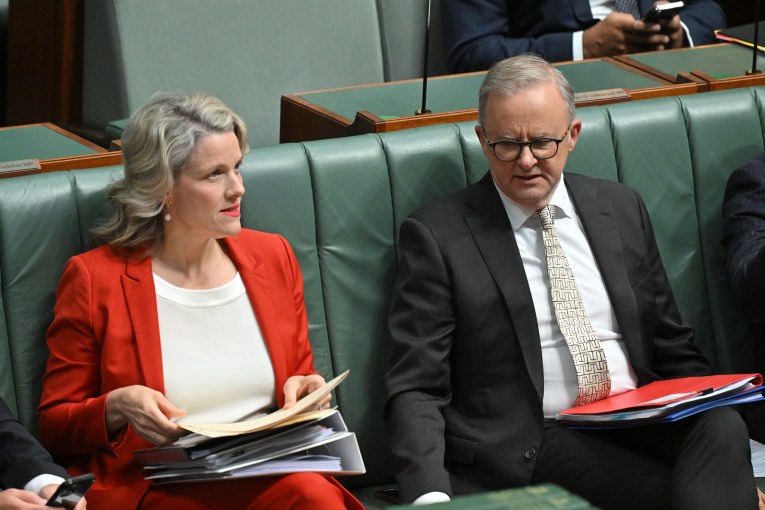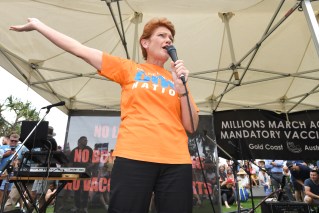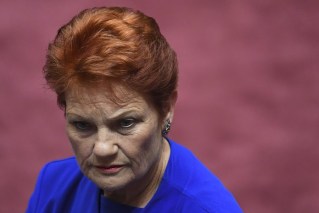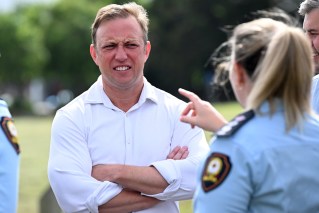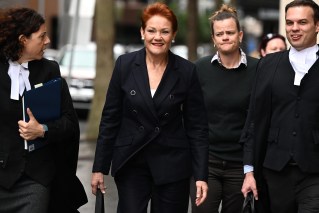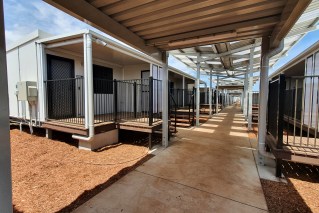It’s early days, but Labor is not the train wreck many had thought it might be
The first fortnight of the new Parliament has told a lot about the government’s broad strategy, the still unfocused thinking of the vanquished Liberal National Party opposition and the determination of the other new representatives to be relevant. Dennis Atkins explains the various game plans.

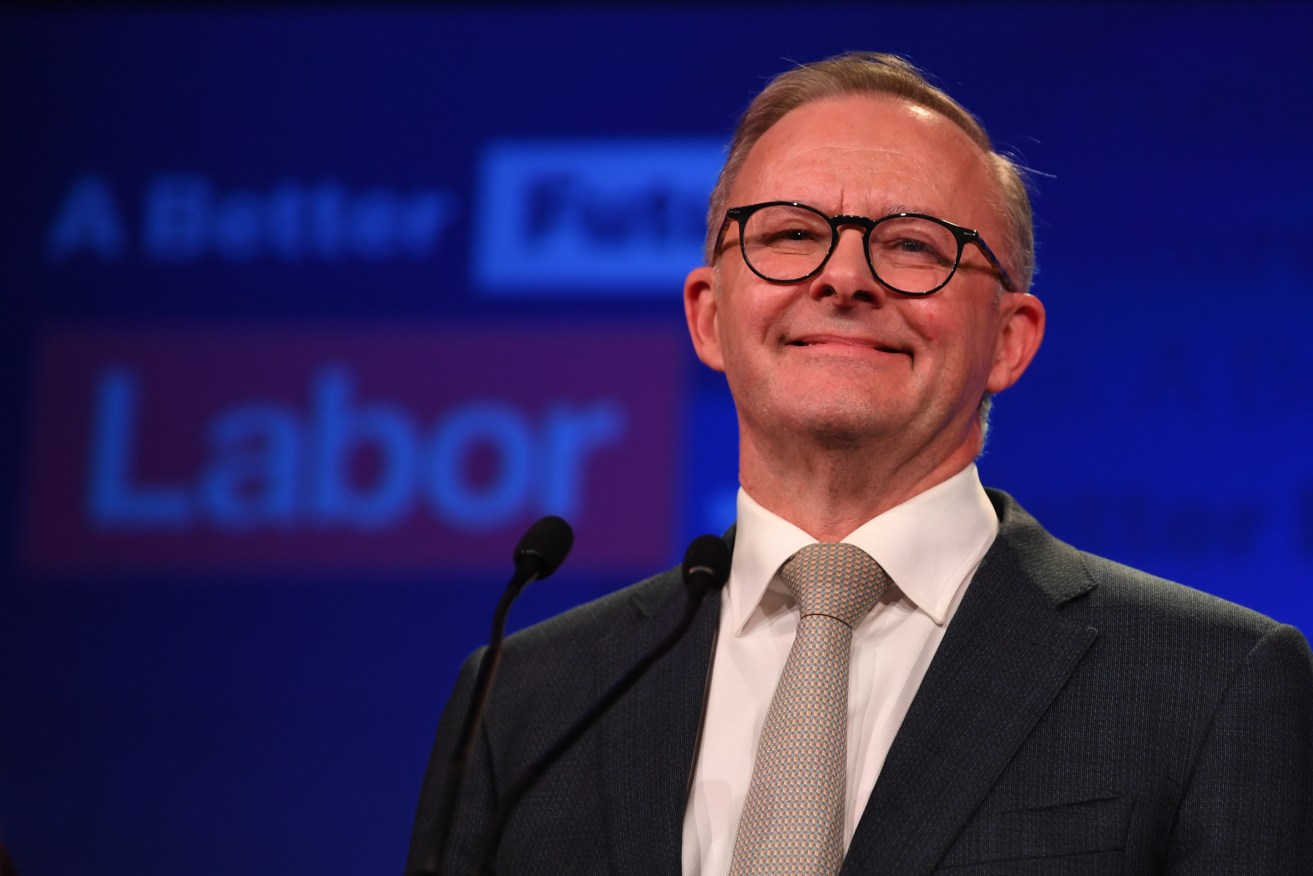
Prime Minister Anthony Albanese has won a huge vote of approval in the first poll results since he was elected. (AAP Image/Lukas Coch)
Despite the braying from senior Liberal and Nationals MPs, the Labor Party came to government much better prepared than many expected. There was a methodical, action based agenda fulfilling election commitments and ticking priority policy boxes for the Anthony Albanese believers.
Given the low support base from which the ALP has to work, this is essential. Climate is top of the list, followed closely by big challenges such as aged care along with broader health objectives and significant symbolic moves like giving proper asylum to the Nadesalingam family, the Tamils held in detention for more than three years, and ending the persecution of Canberra lawyer Bernard Collaery.
At the same time there’s been a drum beat of concern and suggested but undefined action about the issue that trumps others for most Australians, the cost of living everywhere from the grocery store to the petrol pumps, child care to weekly and monthly bills. These issues will need a bullet on the “to do” list at the September jobs summit and October budget.
The government has had a good start but they know there’s a challenge around every corner, any one of which might spell a complete derailing of just about everything else. Uncertain times have seldom been this uncertain.
All of this is against the backdrop of the greatest policy challenge since the Big Bang as environmental, atmospheric, earth and marine scientists, economic magicians, public policy-makers, and everyone from architects to engineers get their collective heads around how to halt global temperatures going beyond a 3 degree Celsius increase and steer rises back towards 1.5.
It’s a hell of a time to sit to the right of the Speaker. However, an iron law of politics is that the worst day in government is way better than the very best day in opposition.
The government is also putting in place a strategy of getting big things done in the Parliament. The climate legislation – still an aspirational set of guide rails rather than any prescriptive road map – outlines the game plan.
As most observers have noted, the government is setting its sights a bit lower than its own ambition, allowing the “teal” independents an opportunity to amend the bill up to where Labor wanted to be and happiness is shared.
The government got what it wanted (it could have done it without the Greens party or the “teals” but the community is hungry for a sense of genuine commonwealth in parliament) and the independents could tell their supporters in those otherwise Liberal seats we’re the agents of change.
Left outside and far from the action is Peter Dutton and the Opposition. Dutton has the difficult job of keeping his set of tribes (inner urban Liberals, outer suburban Liberals, the Nationals and some extras) in the one tent.
The Coalition is learning identity politics is a problem that has more presence and salience in opposition than government. It will probably get harder before it gets easier.
You can imagine Labor deploying similar tactics on integrity and some welfare issues by aiming just short of their comfortable spot, letting the “teals” earn some skin in the outcome and again marginalising the suburban Liberals.
The aim is to keep seats in the inner east and north of Sydney, the east of Melbourne and even inner Brisbane out of reach for Dutton and his team.
Dutton meanwhile has shown he wants to emulate the Republican Senate leader in the United States, Mitch McConnell, who said famously in 2010 his one goal was to make Barack Obama a one term president.
McConnell – who failed on that score but established a conservative force to be reckoned with – said it was the job of the Republicans to overturn and rollback those parts of the Obama agenda (health care, economic bailouts, spending plans and expanding government) they opposed.
“The only way to do all these things … is to put someone in the White House who won’t veto any of these things,” said McConnell. “We can hope the President will start listening to the electorate … But we can’t plan on it.”
Dutton’s negativity suggests he’s of the same mindset regardless of any inconsistency with positions the Liberals took in government. His pressure on Labor over the six month fuel excise holiday (instigated by ex-Liberal treasurer Josh Frydenberg) and energy pricing illustrate this.
Something to watch is what Dutton does over the festering and fractious issue of China/Taiwan relations.
The provocative visit to Taiwan last week by Democratic Speaker of the House of Representatives Nancy Pelosi (against the advice and urging of the White House) has called into question the 50-year old “one China policy” established in the wake of the ground-breaking visit by ex-Republican President Richard Nixon in the early 1970s.
This policy recognises “one China” while maintaining “strategic ambiguity” over the reality of an “independent and democratic” Taiwan.
This has become “strategic confusion” under Democrat White House incumbent Joe Biden who keeps suggesting the US might act to protect Taiwan’s sovereignty only to have his words walked back by staff and officials.
In recent weeks two very senior Republicans – former Donald Trump defence and state secretaries Mark Esper and Mike Pompeo – have visited Taiwan and said the one China policy should be jettisoned, according to Lowy Institute China expert Richard McGregor.
McGregor adds the pair of top Republicans said “strategic ambiguity” towards Taiwan was no longer fit for purpose.
This could be of far greater significance than Pelosi’s visit (however much that might throw regional security out of whack for a few weeks or longer).
A real shift away from “One China” is the red line President Xi Jingping could not accept. The strategic consequences are terrible and frightening.
On Sunday Liberal defence spokesman Andrew Hastie said he supported the official line backed by Australia, Japan and the US. That’s One China.
The question in the background is whether this position is solid. Might Dutton – a Taiwan hawk with expressed doubts about strategic ambiguity – step back from One China, like the Republicans in Washington?
That would throw a real foreign policy difference of great consequence into the middle of Australian politics.
